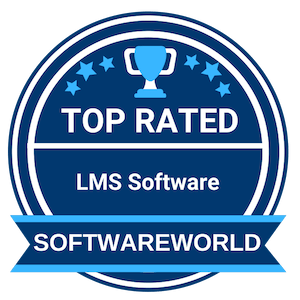
The Continuing Evolution of EdTech: What to Expect in 2024
As we stand on the threshold of 2024, education – as we know it – is undergoing a sea change, largely propelled by EdTech. In a whirlwind of recent years, classrooms have transitioned from static textbooks to vibrant digital landscapes. Learning now embraces ever-greater personalization, empowering students to chart their own paths through interactive platforms and AI-powered tutors. Physical barriers have disintegrated as online courses and virtual collaborations connect remote corners of the globe. Even the nature of learning itself has metamorphosed, transforming students from passive listeners into active explorers who manipulate 3D models and immerse themselves in simulations.
All of this is set to continue in the coming year, albeit at an accelerated pace, with EdTech making education increasingly adaptable, accessible, and interactive.
The year 2023 was a veritable rollercoaster ride for EdTech, experiencing both soaring heights and challenging lows. While innovations and the adoption of new technologies were abundant, the sector itself saw a dip, and funding appeared to have dried up. The EdTech surge during the pandemic years seemed to have led the industry to a peak of inflated expectations, which, naturally, could not be sustained and duly hit a trough soon after. However, in recent months, the industry has once again seen an upturn, and there is every indication that the slope of enlightenment will sustain to take us to the plateau of productivity.
The EdTech market is expected to witness several significant changes in 2024. Let’s delve into some key predictions.
AI to be the Prime Mover
No surprises here, but in 2024, AI—particularly Generative AI—will be the prime mover in the EdTech sector.
Generative AI is taking centre stage in crafting more individualized, yet well-integrated learning experiences. It goes beyond just developing AI-powered tools and solutions; the emphasis lies in leveraging Generative AI to tailor educational content to the specific needs and challenges of individual users.
AI is revolutionizing education across the board, employing interactive interfaces and conversational formats to facilitate adaptive learning and provide instant feedback. This enhances the learning process by delivering highly personalized and meticulously curated content.
Through the collaboration of AI and data analytics, EdTech platforms will be capable of constructing personalized learning paths for each learner. These paths will consider the learner’s existing skills, learning style, and career goals, enabling them to acquire the necessary skills in the most efficient manner possible.
In 2024, AI is expected to synergize with other cutting-edge technologies such as virtual reality and quantum computing, driving advancements in the EdTech landscape.
EdTech to Become More Accessible
As startups extend their reach to smaller cities and towns, the adoption of EdTech is poised to surge among students and learners from Tier 2 and Tier 3 cities, facilitated by the availability of affordable EdTech courses.
Traditionally, the focus of the majority of EdTech platforms has been on English-language instruction. However, as these platforms expand to smaller locales, there arises a pressing need to cater to learners who find comfort in their regional languages. In a diverse country like India, where hundreds of languages are spoken, integrating local languages into educational technology becomes pivotal in enhancing the adaptability and accessibility of EdTech. For a student in a rural area, grasping complex concepts might become more accessible if explained in their native language.
Ensuring accessibility for regional learners involves more than just breaking the language barrier; it’s about personalizing and making learning relatable by adapting the content based on their cultural context. This strategy enhances the learning experience, making it more engaging and impactful. For instance, illustrations and case studies can be made more relevant by incorporating local references.
The spread of EdTech to smaller towns is also steering the growth of ‘hybrid education,’ seamlessly blending in-campus and online learning experiences.
Micro-Credentials to See Macro Growth
In contrast to traditional degrees, which often require years of study, micro-credentials are typically earned through shorter, more focused courses or programs. These credentials empower learners to select and acquire specific skills without committing to a full degree program, making learning more adaptable to individual needs and the dynamic demands of the job market. The convenience of self-paced learning allows learners to manage their time effectively between studies and other obligations.
In 2024, micro-credentials are anticipated to gain prominence in the EdTech sector. As industries evolve and new skills become in demand, the significance of short-term, targeted learning modules will continue to grow.
Furthermore, micro-credentials provide a pathway for individuals to pursue learning throughout their lifetimes. This concept of lifelong learning is especially pertinent in today’s fast-paced world, where the shelf life of skills is rapidly decreasing. Educational content will adopt concise formats, and just-in-time knowledge will take centre stage. Microlearning will prevail, aiding time and attention-constrained learners in retaining more information with minimal effort.
Skill-based Education will be the Mantra
Skill-based education, also known as competency-based education, is poised for significant changes in 2024, propelled by advancements in EdTech and evolving industry demands.
As we delve deeper into the digital age, there will be an amplified emphasis on digital skills, encompassing areas such as coding, data analysis, and digital marketing. EdTech platforms, including notable ones like Camu Digital Campus, will play a pivotal role in delivering these essential skills to learners.
Another noteworthy shift in skill-based education is the move towards industry-aligned learning. Skills taught in educational institutions will be closely aligned with industry needs, ensuring that learners are job-ready upon graduation and effectively reducing the skills gap that many industries currently grapple with.
Given the swiftly evolving technological landscape, there will be an increasing demand for continuous upskilling and reskilling. EdTech platforms will address this need by providing flexible, accessible learning opportunities, enabling individuals to keep their skills up to date throughout their careers.
Learning Management Systems (LMS) in 2024
The Learning Management System (LMS) market is poised for significant growth in 2024. The global LMS market is projected to soar from $18.7 billion in 2022 to over $40 billion by 2027, fuelled by the increasing adoption of digital learning solutions across various sectors, including education and corporate training.
In the upcoming year, LMS platforms are expected to continue evolving to meet the dynamic needs of both learners and educators. Beyond the incorporation of AI in content creation, key trends include the rise of microlearning and gamification. Additionally, LMS platforms in 2024 are anticipated to provide enhanced integration with other tools, such as HR systems and academic tools.
Student Information Systems (SIS) in 2024
In 2024, Student Information Systems (SIS) are poised to evolve further, catering to the dynamic needs of educational institutions. Key trends include:
- Automation: SIS providers are automating the process of synchronizing user data, such as student lists and attendance data from Student Information Systems with other platforms.
- Integration with Other Tools: SIS are expected to enhance integration with various tools, including plagiarism detectors and video conferencing tools.
- Data Management: SIS are facilitating dynamic provisioning and roster updates for virtual classrooms, simplifying the deployment and adoption of various platforms.
As we step into 2024, the EdTech landscape stands on the verge of breakthrough advancements. From the pivotal role of AI in personalized learning to the accessibility of education reaching new frontiers, and the surge of micro-credentials shaping lifelong learning, the future is both dynamic and promising. Skill-based education aligns with industry needs, while Learning Management and Student Information Systems continue to evolve with automation and enhanced integrations. As the year unfolds, the collective endeavours of educators, learners, and technology promise a year of innovation, adaptability, and significant growth in the realm of education technology.







